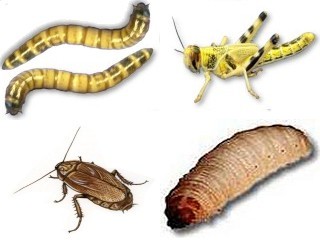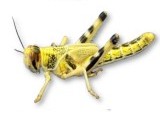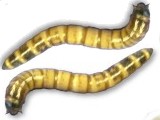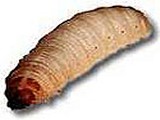Other Insects Used In Feeding Reptiles

Although crickets are the most popular food for insectivorous reptiles, there are other insects that are often used in their feeding.
Below are the most common alternatives to crickets.

Cockroach
These are not the same species that can become pests in your kitchen! The species that is normal sold is the lobster cockroach (Nauphoeta cinerea). These tend to available to be used to start your own colonies.A word of warning lobster cockroaches are fast and can climb, so if you are not careful they will escape and potentially breed in your house.
There are other species of cockroaches available that do not climb, which eliminates this risk.

Locust
Locust are available in different sizes, dependent on age. The smaller ones are often sold as a group in tubs, whereas the large adults are bought individuallyThese are ideal for larger insect eaters, and to add variety to the diet, but are comparatively expensive.

Mealworms
Mealworms are sold in various sizes normally in a tubs, and are very nutritious.There has been some debate, whether after being eaten they can bite into a reptiles stomach lining. Although they have nasty looking mouth parts it is generally accepted that this is not the case. If you want to err on the side of caution you might you can pinch off the mouth parts.

Waxworms
If your pet could choose a live food it would most likely choose waxworms, insectivores tend to eat these with a relish.Waxworms have a high fat content and under normal circumstances should not be used as staple food. They are best used as a treat, or for animals that are sick or to condition during and after breeding.